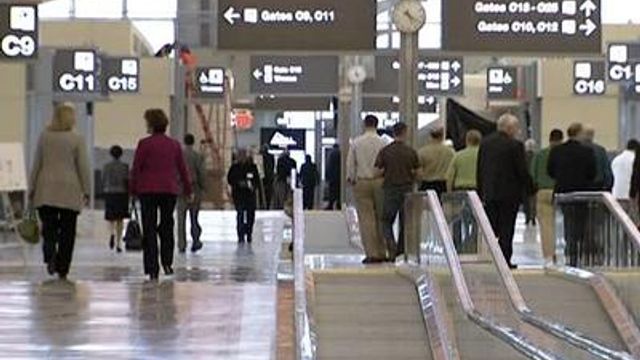Durham seeks split of RDU sales tax
Scraping for every possible dollar in a down economy, city and county leaders in Durham are pressing for a share of sales tax collected by retailers at Raleigh-Durham International Airport.
Posted — UpdatedBecause RDU is located entirely within Wake County, the state Department of Revenue sends the local portion of the sales tax paid by flyers and others passing through the airport back to the county.
Revenue spokesman Robert Whitt said it's impossible to tell how much sales tax is collected at the airport since retailers submit their tax money on a countywide basis and not by specific location.
Durham Mayor Bill Bell said Thursday that his city and Durham County are entitled to a portion of the tax since they helped establish the airport almost 70 years ago. Raleigh, Wake County, Durham and Durham County still divide membership of the board that oversees airport operations.
"It's a partnership. It was created by the four local governments," Bell said. "If any revenues are being distributed to any local government from the airport, it should be distributed to all of the parties."
Wake County Commissioner Tony Gurley said the sales tax revenue shouldn't be divvied up because Wake County provides services to the airport, such as emergency services. He also said the county loses out on property taxes at RDU.
"We basically lose $6 million a year since the Airport Authority is a tax-exempt entity," Gurley said. "If Durham is willing to pay us for the property taxes that we are not collecting, I think that would be a good starting point for discussion."
Bell said he would be willing to allow Wake County to recoup the cost of services provided to RDU before splitting the rest of the sales tax revenue.
State Sen. Floyd McKissick, D-Durham, said lawmakers could force a tax-sharing agreement if the local governments can't come to an understanding.
"I think (sharing the revenue) is only fair and equitable," McKissick said. "It could become somewhat controversial, but I think, if we don't start working on it, it will never get done."
• Credits
Copyright 2024 by Capitol Broadcasting Company. All rights reserved. This material may not be published, broadcast, rewritten or redistributed.






